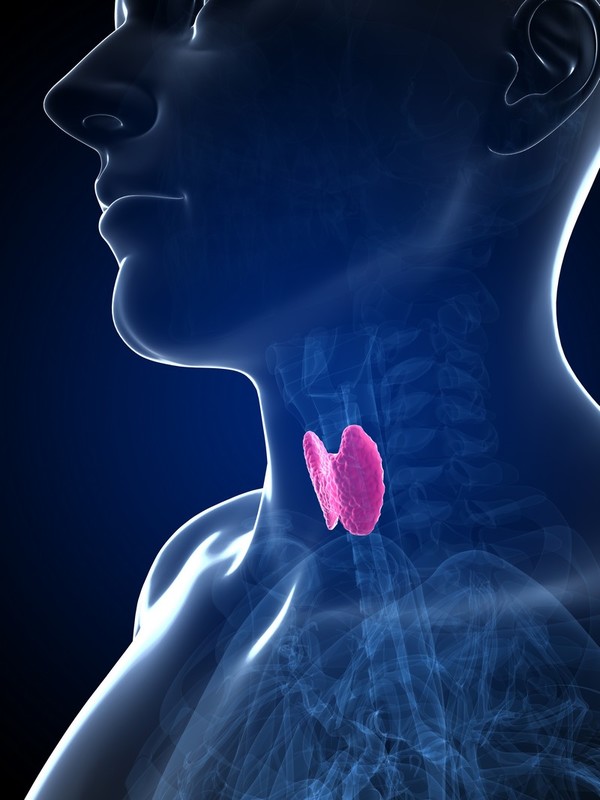11.4 The thyroid gland
Our largest endocrine gland, the thyroid gland, resembles the shape of a butterfly wing. It is located in the front of the trachea near the larynx, and the hormone it secretes, thyroxine, is the most important hormone that affects the body's overall metabolism. In youth, it also regulates the individual's growth and development. Its secretion into the blood stream accelerates the body's basic metabolism, such as the burning of fats and the absorption of nutrients from the intestine.
A hyperactive (overactive) thyroid gland can double the rate of the body's basic metabolism. Typical symptoms include weight loss despite increased appetite, sweating, shaking of hands, puffiness of the eyes and a rapid or irregular heartbeat. It is a more serious and rare disease, but it can also be treated with medication or surgery.
Thyroid inflammation is a common cause of hypothyroidism (underactive thyroid). Symptoms include fatigue, increased need for sleep, weight gain and even depression. Hypothyroidism is usually treated with thyroxine pills. Both conditions are more common in women than in men.
The function of the thyroid gland is to take iodine, found in many foods, and convert it into thyroid hormones. If a person does not gain enough iodine in their diet, this can cause an abnormal enlargement of the thyroid gland, known as a goiter, and other thyroid problems. This common condition has been greatly reduced by adding iodine to table salt.
If too little thyroxine is excreted during childhood, the consequences can be fatal. The child's physical and mental growth are impaired, which may lead to problem's with the person's mental and physical development.
